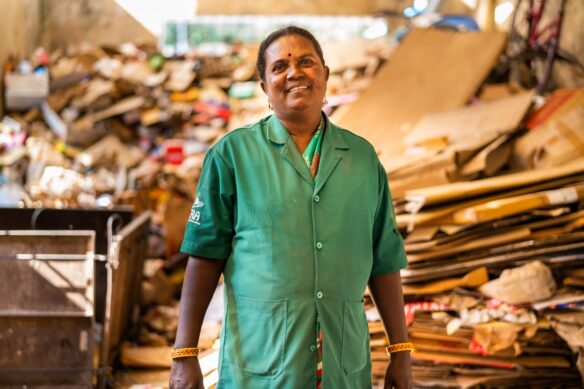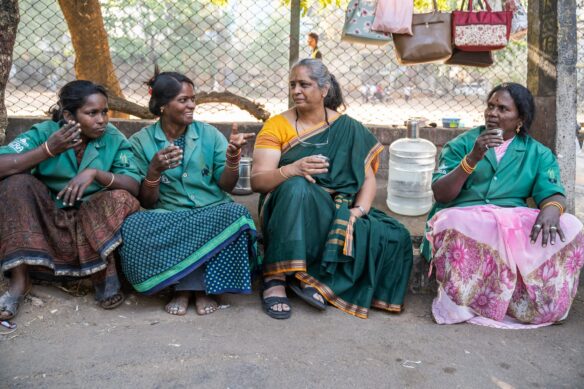KEY TAKEAWAYS:
- As the fashion industry is leaving “take, make, waste” behind, there is an increasing demand for recycled raw materials. There is an urgent opportunity to create social inclusion along the new value chains.
- Informal waste pickers rank among the lowest in the social hierarchy in Bengaluru. They are fundamental to the city’s waste management system, yet they live in poverty, suffer harassment and have limited access to social security.
- The H&M Foundation initiated and funds Saamuhika Shakti, a collective impact initiative aiming to equip waste pickers to lift themselves out of poverty through a holistic ecosystem of eight organisations.
- The plastic waste sourced by waste pickers in Bengaluru is sold to social enterprise Hasiru Dala Innovations. From there, the reclaimed plastic is used by two H&M Group suppliers — turning the waste into buttons featured on garments sold worldwide.
Business is booming in the bustling streets of Bengaluru. Dubbed the Silicon Valley of India, the city is home to the country’s tech industry and has seen rapid economic growth over the past decades.
Not all progress is seen
Yet, Bengaluru is not just a tale of progress and success. As a big metropolis, it’s also a tale of two cities with steep divisions between the general population and those with unofficial occupations. One of these informal groups is known as waste pickers and ranks at the bottom of the city’s social hierarchy.
There are roughly 1.5-4 million informal waste pickers in India. A majority lack access to social security, face discrimination and harassment and hold low social mobility prospects for themselves and their families.
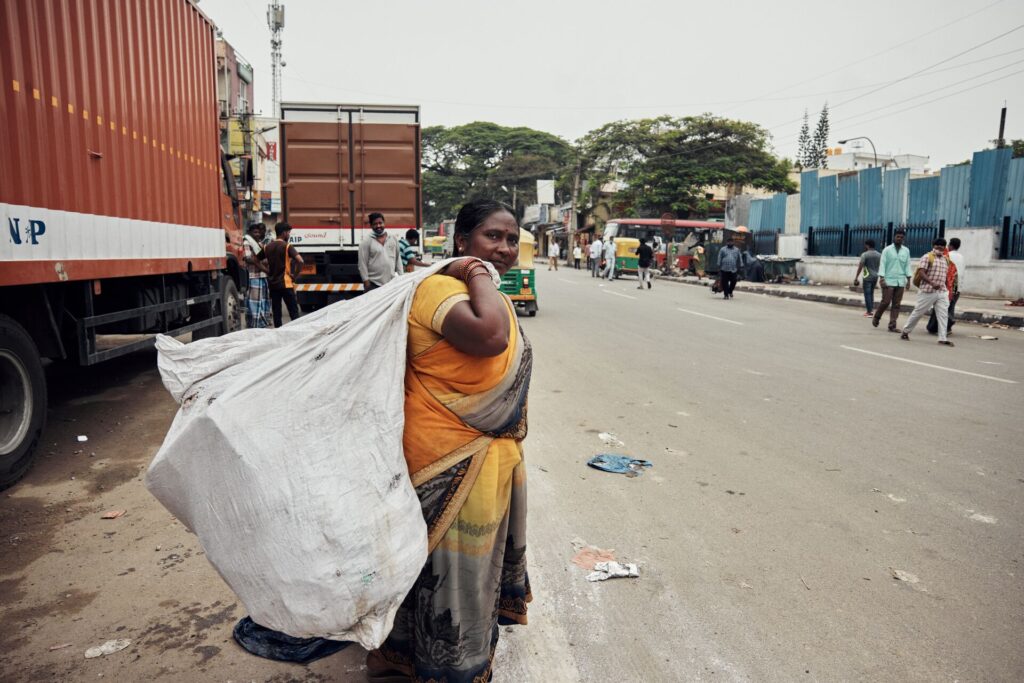
Inclusivity becomes circular
H&M Foundation stands in solidarity with waste pickers through our initiative Saamuhika Shakti — a first-of-its-kind collective impact project in India. Its goal is to propel waste pickers from the fringes of society to become integral and recognised parts of it. The initiative unites local experts and NGOs across sectors in an ecosystem for impact positively affecting a multitude of aspects of waste pickers’ lives. The H&M Foundation is donating $11 million to the initiative over an initial four years.
Three years in the making, Saamuhika Shakti is already impacting more than 30,000 waste pickers including their families. And it’s just getting started.
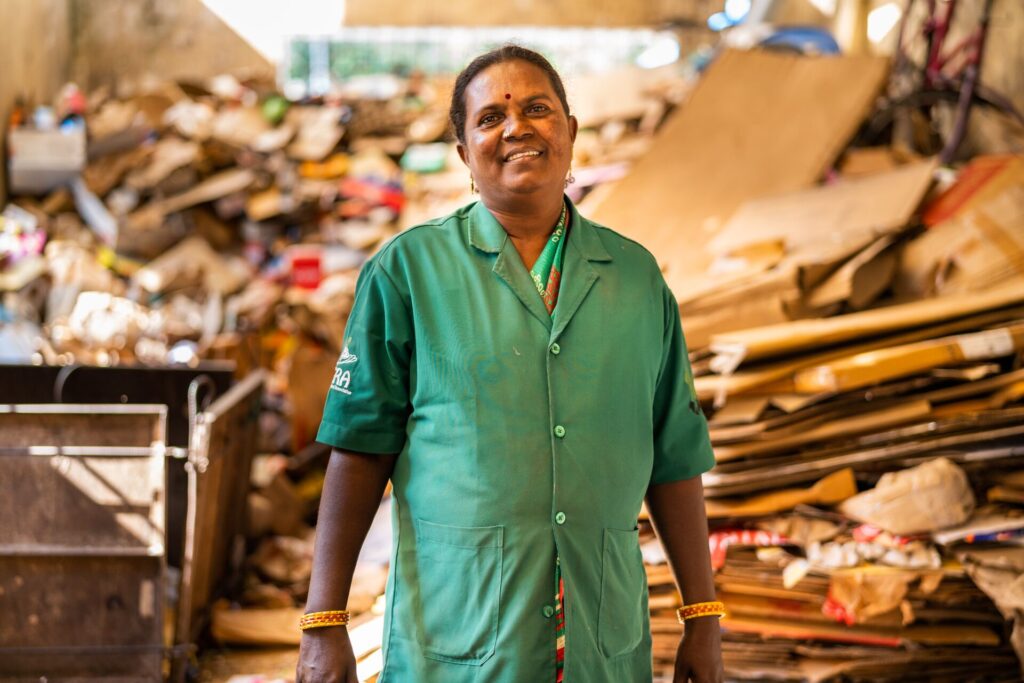
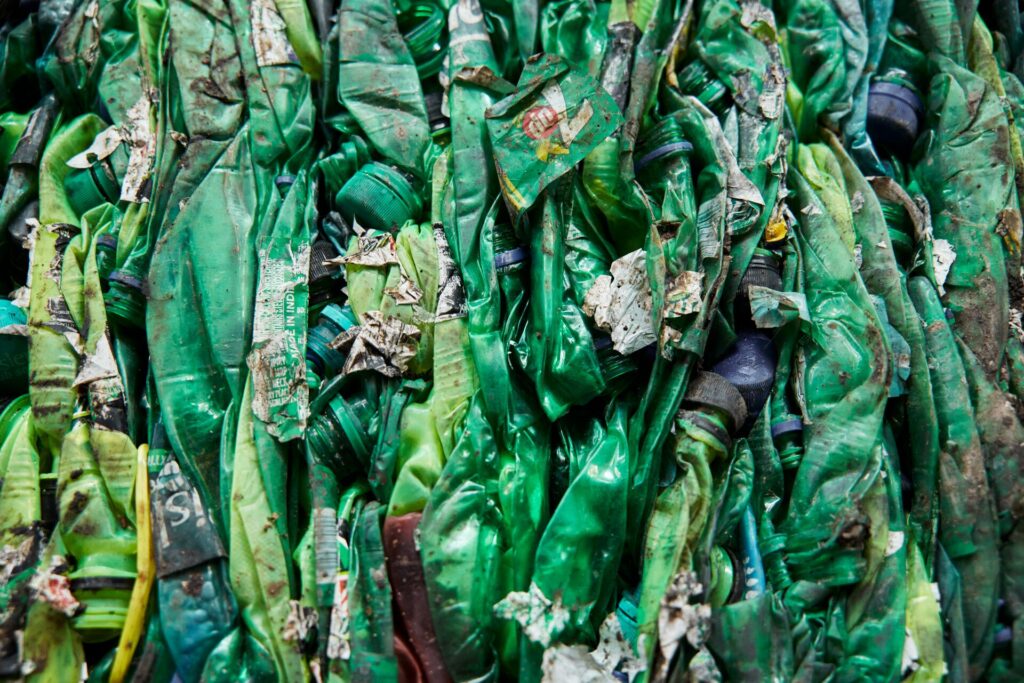

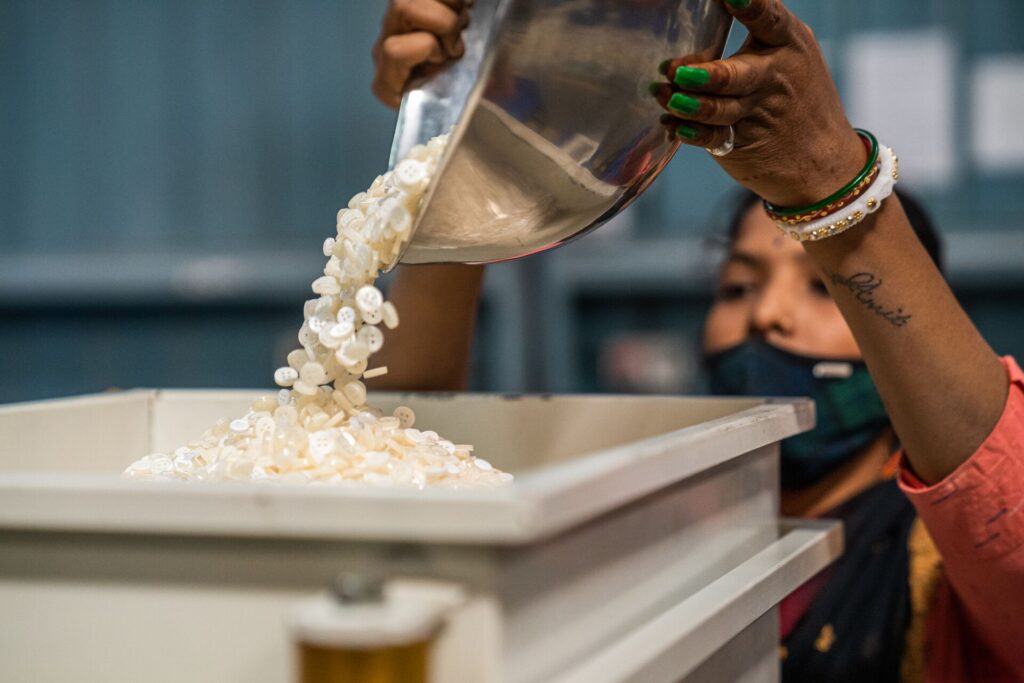
Making plastic waste wearable
Now, the H&M Group extends the reach of Saamuhika Shakti and strengthens the ecosystem around the waste pickers. With the fashion industry working to shift business models from linear to circular, sustainable materials are in demand, and regenerated plastic plays a vital part in future-proofing fashion.
So now, the plastic collected by waste pickers is becoming valuable to the garment industry. How does it work? Waste pickers sell the plastic waste recovered from the streets of Bengaluru to Hasiru Dala Innovations, a social enterprise that has received “Guaranteed Member Status” from World Fair Trade Organization. Hasiru Dala Innovations supplies manufacturers with the regenerated plastic, who turn it into buttons that the H&M Group buys and features on clothing sold worldwide. In effect, it creates economic benefits for Bengaluru’s waste pickers and brings them closer to the formal sector.
With this development, waste pickers have the potential to become key players in a global circular system – contributing to the health and state of our planet, lifting themselves out of poverty and receiving recognition as the changemakers they truly are.
Read more about how the Collective Impact method works and the initiative’s official website Saamuhika Shakti.
